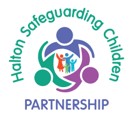Friends & Relationships
Relationships are important to everyone. Indeed, learning about and forming relationships with others is a key life skill. Children and young people who make friendships early on have an easier time forming relationships as they get older. Relationships alter as children grow up. Older children will spend less time with their parents and more time with their peers. This is key to developing strong friendships and living a happy life. Friendships allow a child to explore beyond their family and they should be given space and time to develop.
However, sometimes when you’re in a relationship you don’t necessarily see the signs that may mean you are in a situation that is more unhealthy than healthy. It’s important to remember that in every decision you make you have a choice. You don’t have to be friends with someone who makes you feel bad, and you don’t have to stay in any relationship where you don’t feel happy.
Being able to tell the difference between healthy, unhealthy and abusive relationships can be more difficult than you would think. Here are some things to look out for.
- verbal or emotional abuse, such as, name calling or threatening to spread rumours about you or someone else.
- physical abuse
- sexual abuse, for example, a partner trying to pressure you or someone else into having sex.
- no respect
- controlling behaviour, for example, trying to control you by checking your phone.
- no honesty
- no trust
- no equality
- controlling your money
- being isolated by your partner, such as, being stopped from spending time with friends or family.
- jealous and possessive behaviour
- charming one minute and abusive the next
- telling you what to wear, where to go, who to see.
- frequently putting you down
- using anger and intimidation to frighten and control you.
A healthy relationship is when two people:
- trust each other.
- are equal.
- and trust one another and
- can talk openly.
A healthy relationship should include:
- Communication
- Compromise
- Commitment.
If you think you’re in an unhealthy or abusive relationship, then remember it is not normal and is never OK. It can happen to anyone, adults, and children, gay, straight, and transsexual, women and men. Being in an unhealthy relationship can affect your self-confidence, mental and physical health.
If you have any questions or are worried it is always good to try speaking to an adult. It doesn’t have to be your parents, any adult who you trust and feel comfortable with- any teachers, group leaders, family members or even your friends’ parents may be able to help.
ChildLine offers advice for friendships, including what to do if you fall out, drift apart, get stuck in the middle or are attracted to a friend. Childline also has lots of tips for making new friends. In addition, Childline has advice about how to tackle loneliness and build self-esteem.
Health for Teens have put together an article about Friendship– what makes a good friend and what to look out for in a negative friendship.
The Mind website explains more about LGBTQ+ communities and mental health.
Bullying & Cyberbullying
Bullying can have a big impact on you and your mental health, but you aren’t alone and there is support out there for you.
BULLYING IS WRONG, DON’T IGNORE IT, ASK FOR HELP
Talk over what to do with a friend, your teacher, your mum, dad, or someone you trust.
Childline run a free 24-hour helpline. Phone them on 0800 1111 and speak to someone who is there to help.
The Anti-Bullying Alliance have put together advice on what to do after bullying and how to report it, as well as things that you can do to overcome bullying in person and online.
Kidscape offer advice targeted at cyber-bullying, including who you can report it to and the steps that you should take to manage the situation.
Axess
Axess sexual health is the free sexual health service for Halton, Warrington, Liverpool, Knowsley and Cheshire East.
Axess provide a young person’s service, Axess 4 u, alongside their general clinic offer. Axess 4 u is a walk-in service for those age 19 and younger. You don’t need an appointment to be seen at Axess 4 u.


